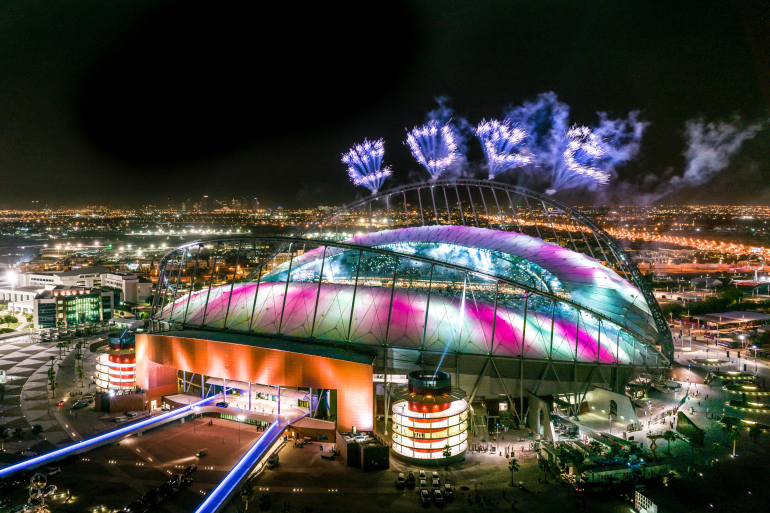The 2022 World Cup in Qatar will rewrite the international community’s perception of the Middle East, a new book claims.
It will show that the country is “open-minded, creative, passionate, curious, generous and kind”, sports journalist Ioannis Daras says.
In Qatar 2022: The World Cup Of Arabia, he adds the event will have a huge impact on the region. He writes that it “opens a rare window of opportunity to set the record straight and rehabilitate the Middle East’s much-abused reputation by taking to a world stage in full view of more than one billion people around the globe”.
After controversy over the decision to award the event to the Gulf state, which has come under fire for its human rights record, Mr Daras argues that it will serve to “establish a modernist legacy”.
He compares the Qatar World Cup with the rugby and football world cups in South Africa in 1995 and 2010, which he says went a long way to “off-set a national image still sullied by its notorious Apartheid regime and the associated horrors”.
Mr Daras says: “Hosting the 2010 tournament offered South Africa and the entire continent a unique chance to present a new African order, consolidating the positive effects of the 1995 Rugby World Cup. Once again, a major sports event advanced reconciliation and unity.”
The author argues that the Qatar World Cup could have a similar effect for the whole Middle East, but only if Qatar and its neighbours present a unified image.
Qatar was chosen as the host nation at a glamorous ceremony in Zurich, Switzerland, in 2010. Sheikh Hamad bin Khalifa Al Thani, the then-emir of Qatar, was seen holding aloft the World Cup trophy with former Fifa President Sepp Blatter during the celebrations.
Mr Daras notes that the announcement had been preceded by a series of tragic events and significant setbacks in the Middle East that sowed an atmosphere of despair and devastation. He writes: “This cycle of unfolding misfortune included the war in Iraq that broke out in 2003, in Lebanon (2006) and Gaza (2008), right up to the political collapse in Egypt.
“One tragic event after the other sustained the impression that the Middle East region was in freefall.
“Then, against all predictions, came the breakthrough moment – the surprise announcement that shocked friend and foe alike.
“Qatar had won the chance to invite the entire world to the Middle East, selected against all the odds to host the 2022 World Cup.
“Celebrities, dignitaries, investors, business people, football fans plus the entire world media would all be trekking to the region to take part in the world’s most popular sports event.
“Inviting the world to come and experience Arab hospitality, culture and lifestyle is a sure-fire remedy guaranteed to dispel negative perceptions.
“Making the Arab world more accessible and more relatable for foreign audiences would counter and reverse the undermining process of ‘otherisation’.” The book was commissioned by thinktank Fifa Ethics & Regulations Watch, which admitted: “It takes an optimistic look.”
Source: Sunday Express























































